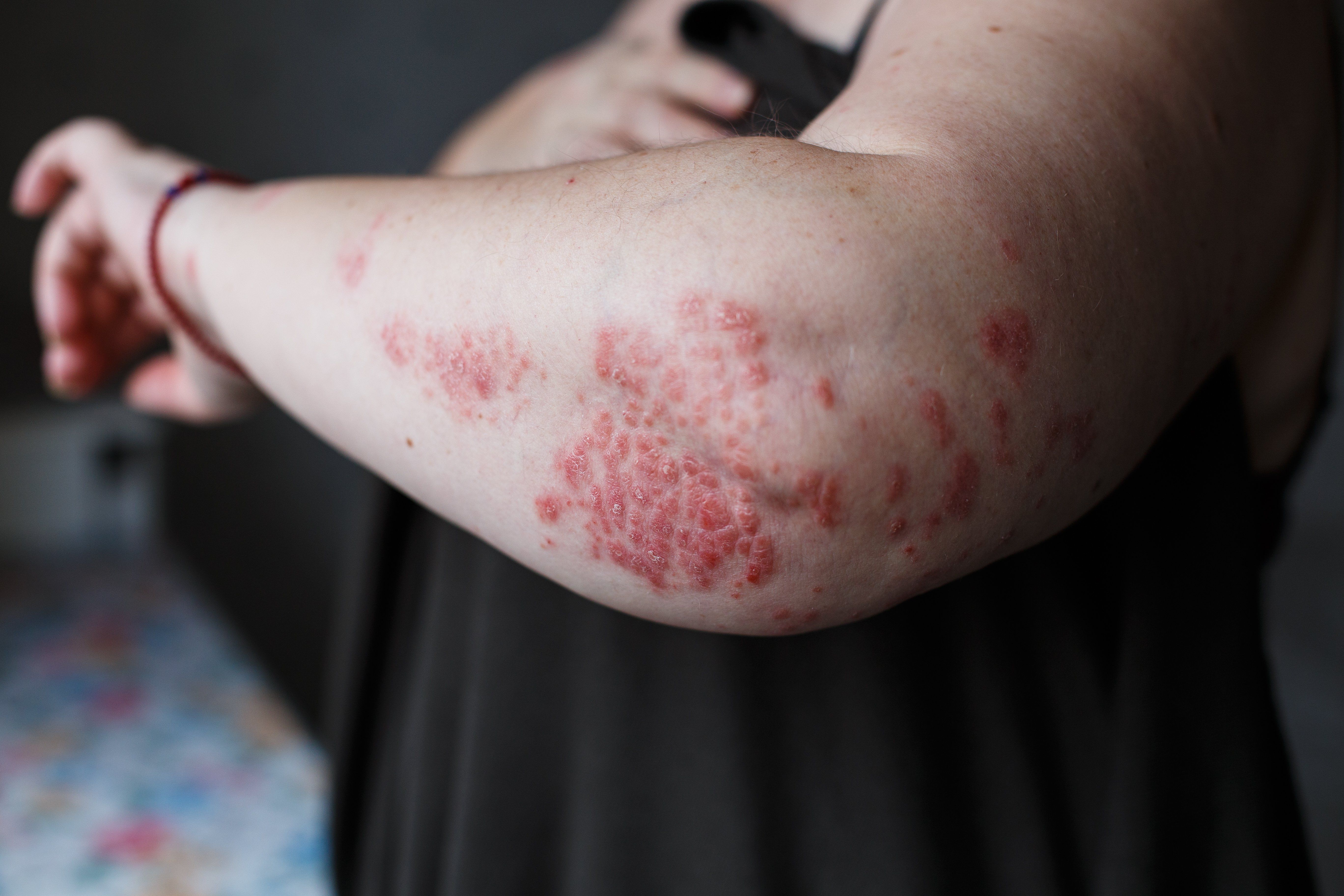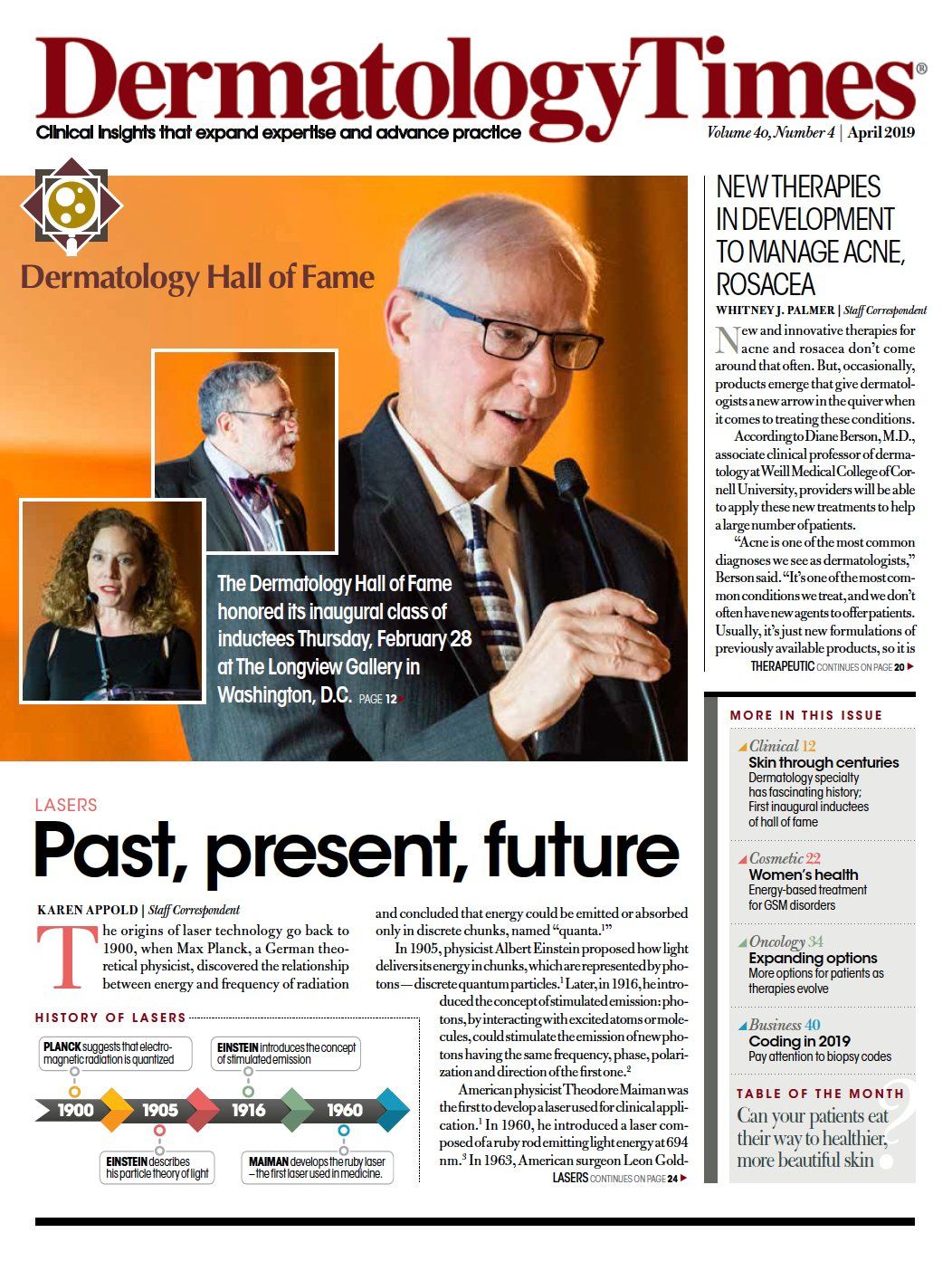- Case-Based Roundtable
- General Dermatology
- Eczema
- Chronic Hand Eczema
- Alopecia
- Aesthetics
- Vitiligo
- COVID-19
- Actinic Keratosis
- Precision Medicine and Biologics
- Rare Disease
- Wound Care
- Rosacea
- Psoriasis
- Psoriatic Arthritis
- Atopic Dermatitis
- Melasma
- NP and PA
- Skin Cancer
- Hidradenitis Suppurativa
- Drug Watch
- Pigmentary Disorders
- Acne
- Pediatric Dermatology
- Practice Management
- Prurigo Nodularis
- Buy-and-Bill
Publication
Article
Dermatology Times
Oral Tyk2 inhibitor promising for psoriasis
Author(s):
With a crowded indication that includes 14 systemic agents, is there really room for tyrosine kinase 2 (Tyk2) inhibitors to treat psoriasis? This physician thinks so.
With a crowded indication that includes 14 systemic agents, is there really room for tyrosine kinase 2 (Tyk2) inhibitors to treat for psoriasis? This physician thinks so. (Ольга Тернавская - stock.adobe.com)

Although it's early, said an expert at the American Academy of Dermatology (AAD) 77th Annual Meeting, there probably is room in the psoriasis drug market for tyrosine kinase 2 (Tyk2) inhibitors. Phase two results for potentially the first oral Tyk2 inhibitor appear encouraging, he added.
Founder and CEO of the Dermatology Research and Education Foundation in Irvine, Calif, Jashin J. Wu, M.D., said 14 systemic agents have earned FDA approval for plaque psoriasis: four oral drugs and 10 biologics. Approval of risankizumab is expected in April 2019.
Janus kinase (JAK) inhibitors being explored for psoriasis carry many potential side effects, he added. "But when you look at the mechanism for a selective Tyk2 inhibitor, it seems to have fewer side effects compared to the JAK inhibitors, because it is more targeted."
Tyk2 is part of the interleukin (IL)-23 pathway, a key pathway in the pathogenesis of psoriasis, Dr. Wu said. "But Tyk2 is not part of other pathways that may reduce blood counts or worsen cholesterol levels."
A phase two study of BMS-986165 published in the New England Journal of Medicine in September 2018 produced very promising results, he noted. Among five dosing regimens and placebo, doses of at least six mg daily produced week 12 Psoriasis Area and Severity Index (PASI) rates between between 67 percent and 75 percent. These rates are comparable to those of ustekinumab or adalimumab, said Dr. Wu. "They're not quite as high as you expect with the IL-17 and IL-23 inhibitors."
The most common side effects in the trial included nasopharyngitis, headache, diarrhea, nausea and upper respiratory tract infection. Additionally, investigators noted seven cases of dose-dependent mild-to-moderate acne in patients treated with the three highest doses.
BMS-986165 likely will cost less than the biologics, said Dr. Wu. "It has a different side effect profile. We don't know yet what monitoring needs to be done with BMS-986165." He suspects that patients likely will need at least regular CBC and chemistry panels.
Biologic drugs need a baseline TB test, and only patients at high risk need annual TB testing, he said. New AAD/National Psoriasis Foundation guidelines for biologic treatment co-authored by Dr. Wu also recommend a baseline CBC and complete metabolic profile for all patients going on biologic drugs.
Compared to existing oral drugs approved for psoriasis, Dr. Wu added, BMS-986165 could be the second most effective, after cyclosporine. "But cyclosporine is very toxic, especially with long-term use. BMS-986165 could be as safe as acitretin and apremilast."
Investigators recently began enrolling patients for a phase three trial of BMS-986165 (NCT03624147). Dr. Wu said he looks forward to the long-term data the trial will provide.
Reference:
Jashin J Wu MD. "With Multiple Recent Biologics for Psoriasis, Is There Any Room for Tyk2 Inhibitors?" S029, American Academy of Dermatology. March 2, 2019.
Disclosures:Dr. Wu is a consultant for Bristol-Myers Squibb and a consultant or investigator for Celgene, Eli Lilly, Janssen Pharmaceuticals, LEO Pharma, Novartis, Ortho Dermatologics, Pfizer, Sanofi-Regeneron and Sun Pharma.






